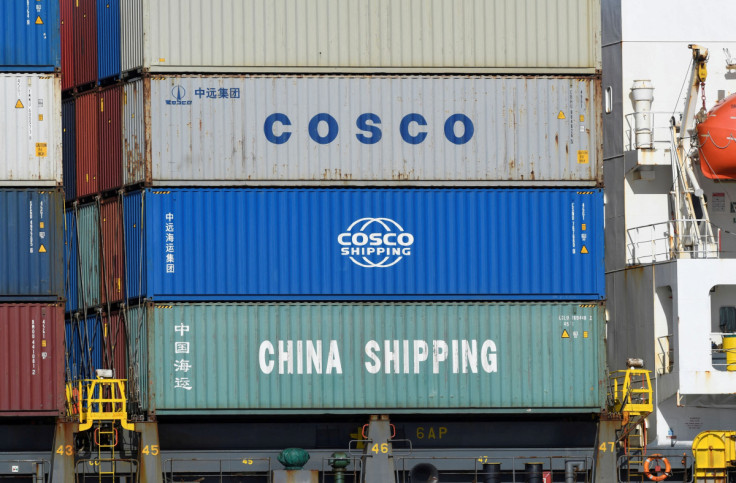Germany Unlikely To Block China Port Deal But Offer Smaller Stake -sources

Germany may allow China's Cosco to take a smaller stake than originally planned in a Hamburg port terminal, in what a ministry source on Tuesday described as an "emergency solution" to approve the deal but mitigate the impact.
Shipping giant Cosco made a bid last year to take a 35% stake in one of logistics firm HHLA's three terminals in Germany's largest port, but the German coalition has been divided over whether to let the deal go ahead.
The compromise being discussed would see Berlin approving a sale of 24.9% of the terminal to Cosco. Sources said Germany's economy and foreign ministries still wanted to block the deal entirely but are unlikely to succeed as Chancellor Olaf Scholz has not put the issue on the cabinet agenda.
How the government handles the matter is seen as a gauge of how far Germany is willing to toughen its stance on China, its top trading partner, due to concerns about being overly dependent on the increasingly assertive authoritarian country.
The sources said negotiations had not yet been finalised. The news comes a week before Scholz is due to travel to China.
Table Media's China.Table had reported on Monday that Cosco might agree to a deal for a smaller stake, citing sources close to the negotiations.
"The federal government departments involved see a limit to 24.9 percent as an 'emergency solution' to prevent worse things from happening," an economy ministry source said, adding a smaller stake would give Cosco less say in running the terminal.
"Of course, this does not solve the actual risk issues, so the departments continue to believe that a complete ban is the right way to go," the source said.
Beijing has previously said it hoped Germany would view the deal in an "objective and rational light" without politicising economic relations.
© Copyright Thomson Reuters 2025. All rights reserved.




















